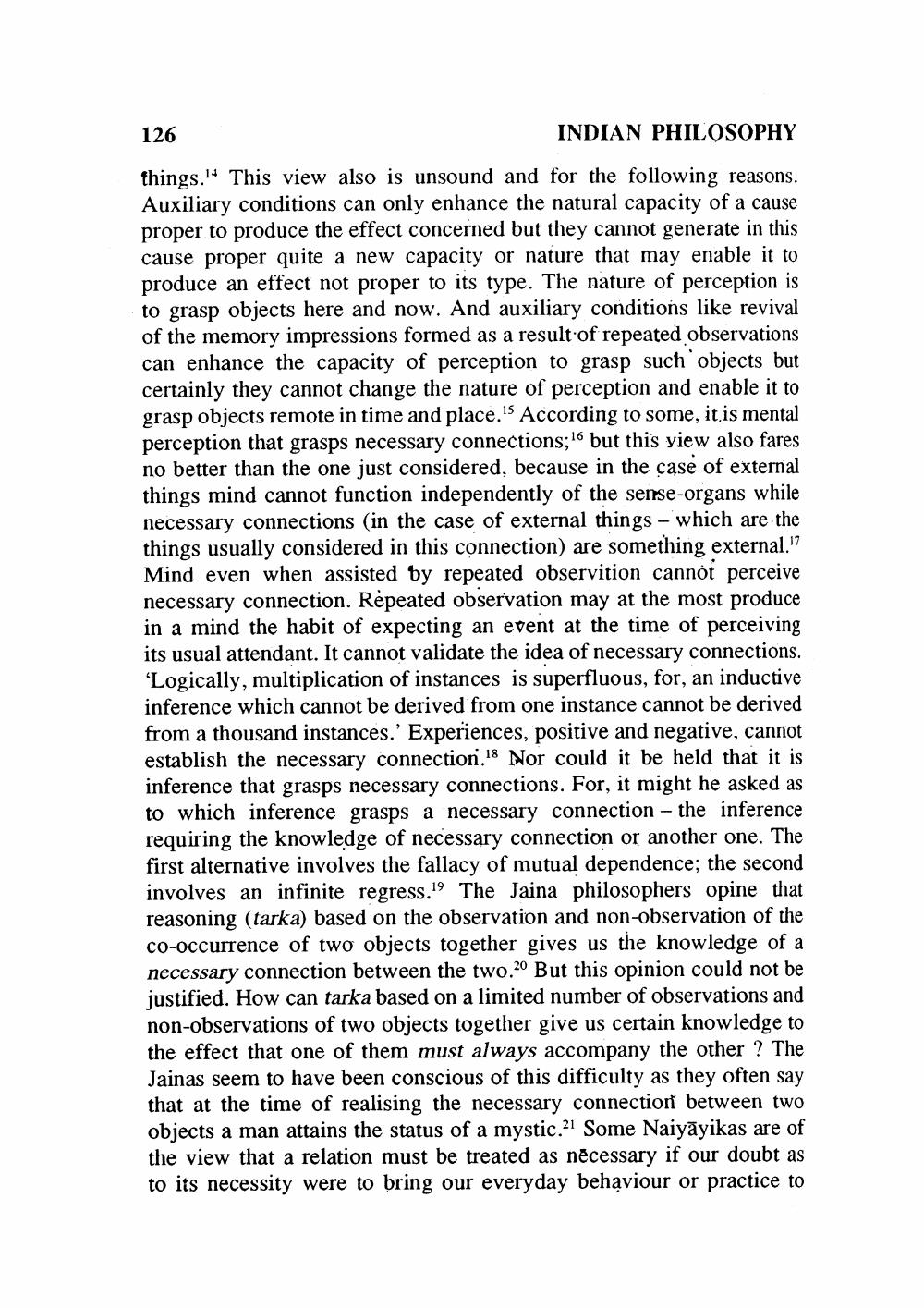________________
126
INDIAN PHILOSOPHY
things.! This view also is unsound and for the following reasons. Auxiliary conditions can only enhance the natural capacity of a cause proper to produce the effect concerned but they cannot generate in this cause proper quite a new capacity or nature that may enable it to produce an effect not proper to its type. The nature of perception is to grasp objects here and now. And auxiliary conditions like revival of the memory impressions formed as a result of repeated observations can enhance the capacity of perception to grasp such'objects but certainly they cannot change the nature of perception and enable it to grasp objects remote in time and place. According to some, it is mental perception that grasps necessary connections;'6 but this view also fares no better than the one just considered, because in the case of external things mind cannot function independently of the sense-organs while necessary connections in the case of external things - which are the things usually considered in this connection) are something external." Mind even when assisted by repeated observition cannot perceive necessary connection. Repeated observation may at the most produce in a mind the habit of expecting an event at the time of perceiving its usual attendant. It cannot validate the idea of necessary connections. 'Logically, multiplication of instances is superfluous, for, an inductive inference which cannot be derived from one instance cannot be derived from a thousand instances.' Experiences, positive and negative, cannot establish the necessary connection.18 Nor could it be held that it is inference that grasps necessary connections. For, it might he asked as to which inference grasps a necessary connection - the inference requiring the knowledge of necessary connection or another one. The first alternative involves the fallacy of mutual dependence; the second involves an infinite regress.19 The Jaina philosophers opine that reasoning (tarka) based on the observation and non-observation of the co-occurrence of two objects together gives us the knowledge of a necessary connection between the two.20 But this opinion could not be justified. How can tarka based on a limited number of observations and non-observations of two objects together give us certain knowledge to the effect that one of them must always accompany the other ? The Jainas seem to have been conscious of this difficulty as they often say that at the time of realising the necessary connection between two objects a man attains the status of a mystic.21 Some Naiyāyikas are of the view that a relation must be treated as necessary if our doubt as to its necessity were to bring our everyday behaviour or practice to




